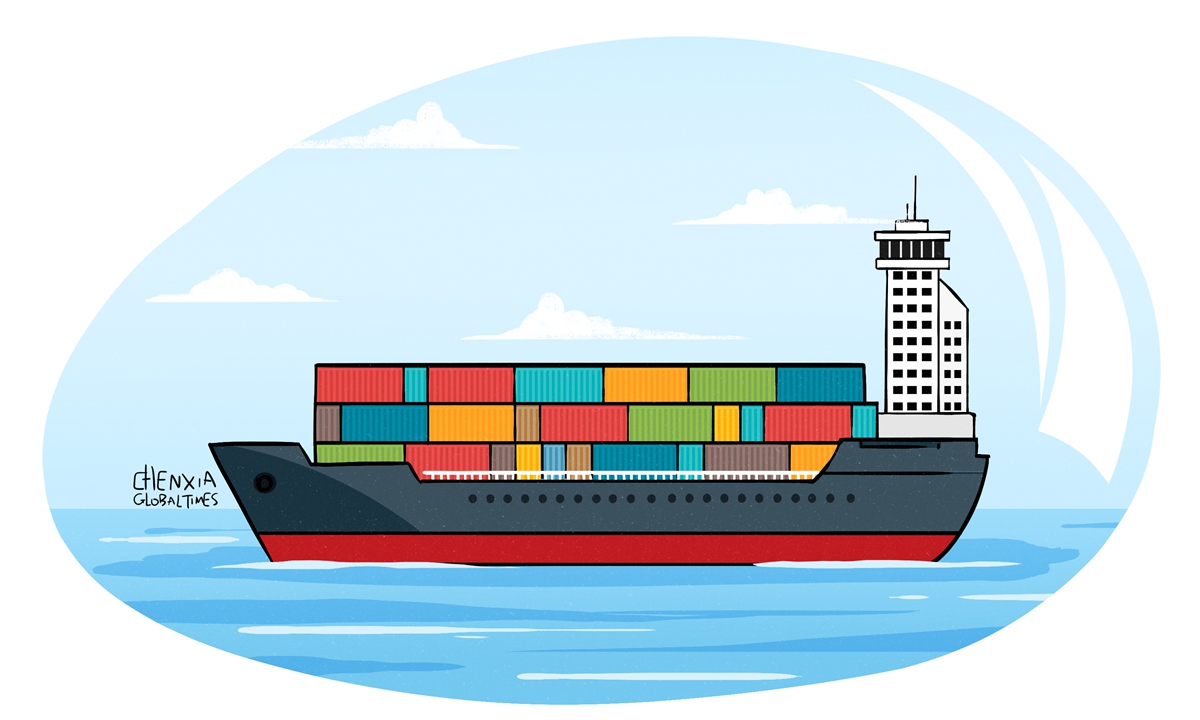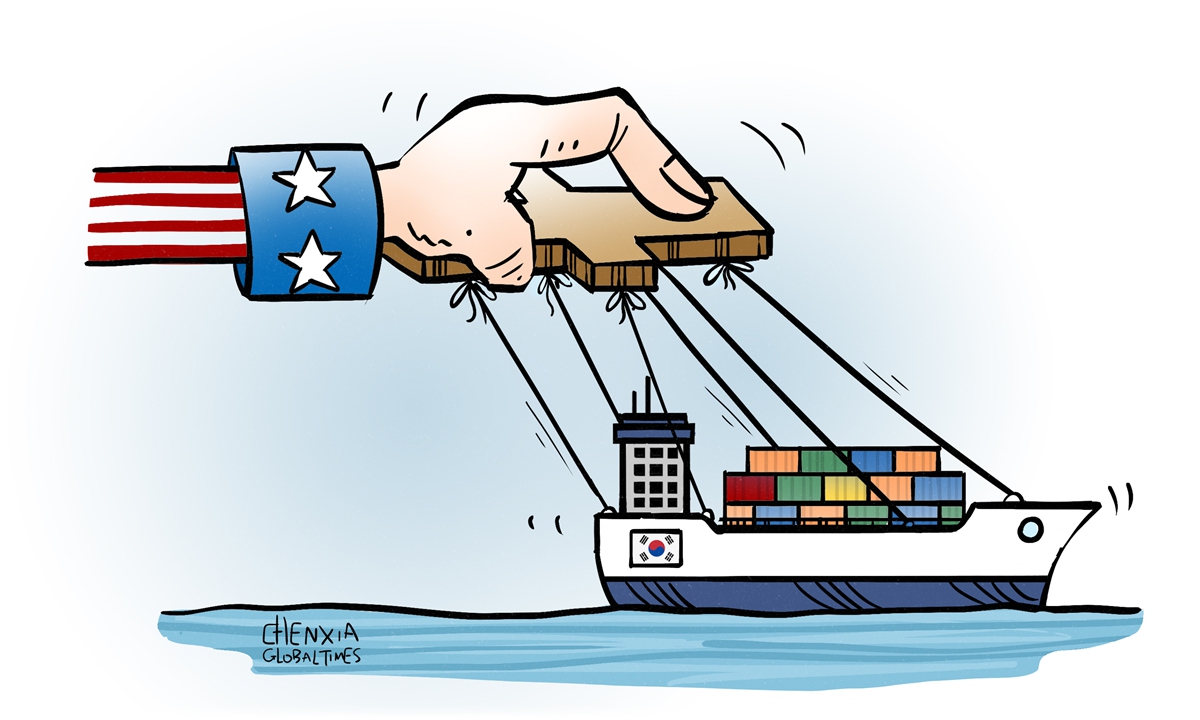
Illustration: Chen Xia/GT
South Korea has replaced the US as the top exporter of commodities to China over the first five months of this year, Sputnik News reported. As a restructuring of the Asian industrial chain seems to have accelerated, expectations are on the rise as to how South Korea can seize the opportunity to revitalize its export economy. This is the time to test Seoul's political wisdom and diplomatic autonomy.In 2023, the US exported a total of $164.2 billion in goods to China, the highest among all individual countries listed by China's General Administration of Customs on its official website. In the January-May period this year, the export volume of South Korea to China reached $70.9 billion, growing 12.9 percent year-on-year, exceeding the $67.6 billion for US exports to China.
Will South Korea surpass the US as China's largest individual source of imports throughout 2024? It is, to some extent, a stunt which bears little practical significance. However, the surge in South Korea's exports to China is a development that deserves attention. It is a clear signal of the restructuring of Asian value and industrial chains.
It should be noted that the restructuring of supply chains comes at a time when the US is trying to artificially push "decoupling" between the US and Chinese technology ecosystems. Washington has been busy trying to coerce its allies, including South Korea, to follow its steps to exclude China from the global industry and supply chains, especially in strategic sectors such as the semiconductor industry. However, things are going in the opposite direction of what American political elites have expected.
South Korea's exports rose for an eighth straight month in May, led by robust chip sales. Exports of chips grew for a seventh consecutive month, rising 54.5 percent, along with gains in other IT products such as display panels, computers and wireless communication devices, according to Reuters. A considerable portion of semiconductors has been exported to China, contributing to the surge in South Korea's exports to the country.
It's unrealistic and impossible to promote "decoupling" when it comes to Asian supply chains and the global industrial chains. China has been a staunch supporter of free trade, and wants to always play a constructive role in shoring up supply chain cooperation. It is in South Korea's best interest to match China's attitude to oppose any form of "decoupling" and strengthen mutually beneficial cooperation with China.
Despite the "decoupling" push of the US, Asian supply and industrial chains have become increasingly intertwined. This is a result of market choice. Supply chain restructuring has been accelerated in Asia. In this process, China's economic and trade relations with many Asian countries have been strengthened. For instance, both Vietnam and Malaysia achieved double-digit growth in their exports to China in the first five months of this year.
Amid a restructuring of Asia's industrial chain, China is playing an increasingly important role as an import market. China will firmly share market opportunities with the rest of the world. The question remaining is whether South Korea can seize this opportunity to expand exports to China, and how the two sides can tap potential for mutually beneficial cooperation.
First, without real progress in political cooperation, mutual trust and a favorable atmosphere, economic cooperation can be hindered due to ideological differences. So, the two sides need to maintain effective communication at all levels.
Second, as a restructuring of the Asian industrial chain accelerates, countries can make full use of their comparative advantages and optimize the regional value chain through cooperation, eventually promoting economic integration. Some Southeast Asian economies like Vietnam are committed to developing labor-intensive manufacturing industries, while South Korea enjoys a comparative advantage in high-tech industries, including semiconductor and other IT products. South Korea needs to maintain and enhance its comparative advantages and encourage exports of high-tech products to China.
It is understandable that South Korea faces political pressure from Washington amid the US' push for tech decoupling from China, but South Korean politicians should maintain strategic sobriety. We hope news reports saying South Korea has replaced the US as the top exporter to China can bring confidence to Seoul. At a critical moment in the restructuring of the Asian industrial chain, South Korea needs to show its determination to oppose "decoupling" and stimulate exports.
The author is a reporter with the Global Times. bizopinion@globaltimes.com.cn



